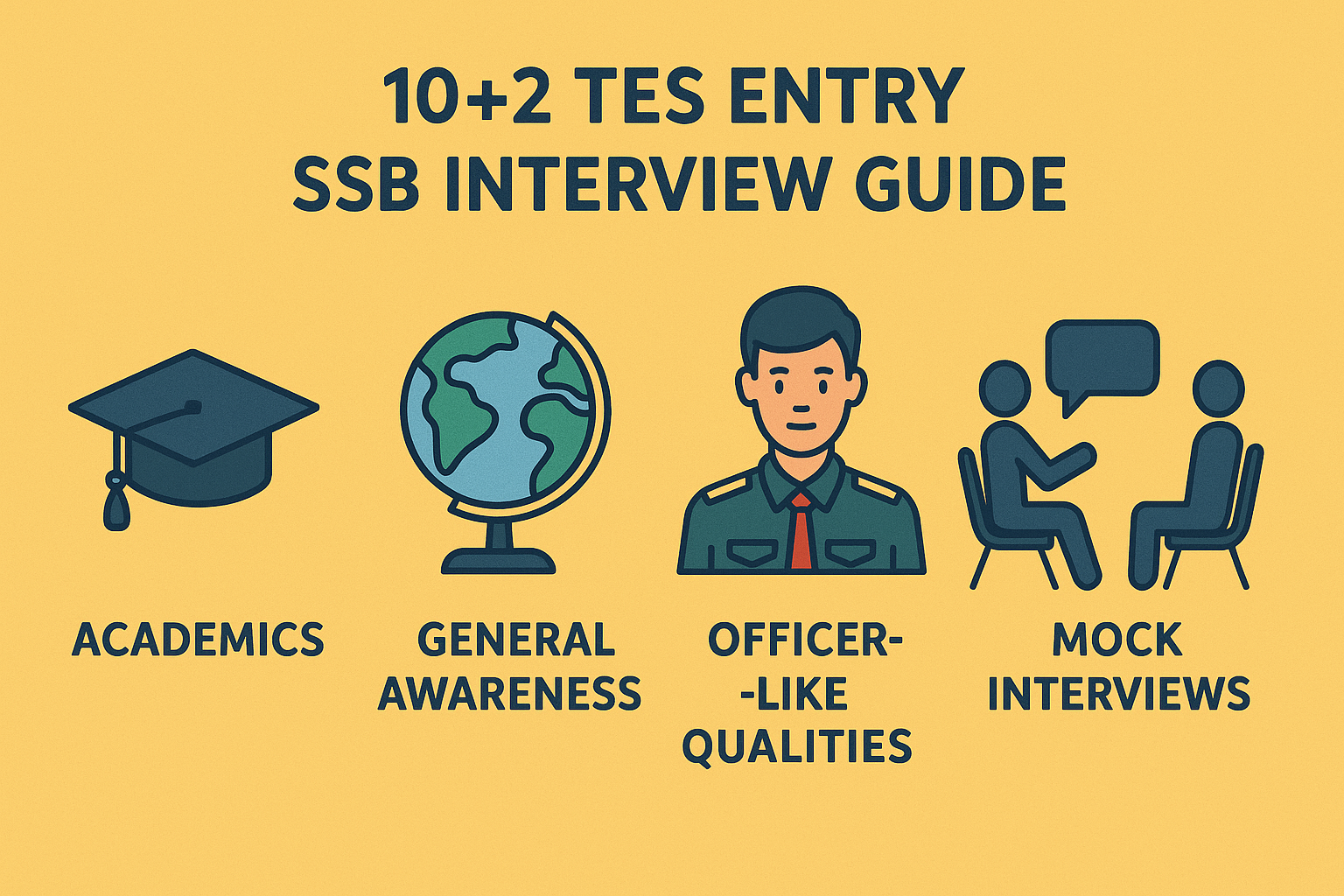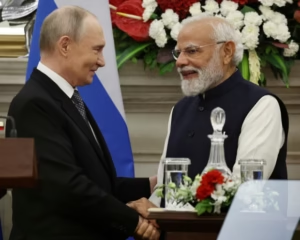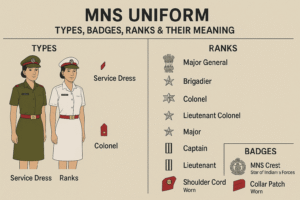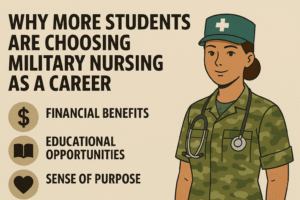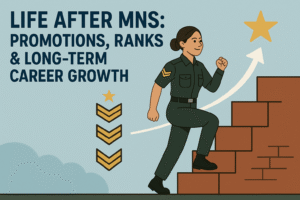The 10+2 Technical Entry Scheme (TES) is a golden opportunity for male candidates who have completed their 12th with PCM and wish to join the Indian Army as officers. Selected candidates are called for the SSB Interview, a rigorous five-day selection process that assesses not only intellectual ability but also leadership, psychological aptitude, and officer-like qualities (OLQs).
In this comprehensive TES SSB Interview Guide, we will cover everything you need to know—from eligibility and selection stages to preparation tips and frequently asked questions.
What is the 10+2 TES Entry?
The 10+2 Technical Entry Scheme allows 12th-pass male candidates (with PCM and JEE Mains qualification) to be recruited directly into the Indian Army as commissioned officers, post-training. Unlike NDA, this entry doesn’t involve a written exam. Instead, candidates are shortlisted based on their JEE Mains score and Class 12 PCM percentage and are directly called for the SSB Interview.
Eligibility Criteria for TES Entry
Gender: Male only
Educational Qualification: 10+2 with Physics, Chemistry, Mathematics (minimum 60% aggregate)
JEE Main: Compulsory from TES 2021 onwards
Age Limit: 16.5 to 19.5 years
Nationality: Indian
TES SSB Interview Process Overview
The TES SSB Interview is a five-day process held at SSB centers across India. Here’s a breakdown:
Day 0 – Reporting Day
Document verification
Allotment of chest numbers
Introduction and instructions
Day 1 – Screening Test
Officer Intelligence Rating (OIR) Test
Verbal and Non-Verbal Reasoning
Picture Perception and Discussion Test (PPDT)
Candidates write a story on a blurred image and then discuss it in a group.
Result: Only selected candidates move to the next stage.
Day 2 – Psychological Tests
Thematic Apperception Test (TAT) – Write 12 stories based on images shown.
Word Association Test (WAT) – 60 words, 15 seconds per word to write a sentence.
Situation Reaction Test (SRT) – 60 situations with rapid responses.
Self-Description Test (SDT) – Write self-analysis from the perspective of parents, friends, teachers, and yourself.
Day 3 & 4 – GTO Tasks
Group Discussions (GD)
Group Planning Exercise (GPE)
Progressive Group Tasks (PGT)
Half Group Task (HGT)
Individual Obstacles (IO)
Command Task
Lecturette
Final Group Task (FGT)
Day 5 – Personal Interview & Conference
PI: Questions on academics, hobbies, current affairs, life goals, and family background.
Conference: All assessors jointly discuss and evaluate the candidate’s overall performance.
How to Prepare for TES SSB Interview
1. Understand OLQs (Officer-Like Qualities)
The entire SSB process is designed to assess OLQs such as leadership, confidence, responsibility, decision-making, and social adaptability. Make sure your actions and responses reflect these traits.
2. Improve Communication Skills
Clear and confident communication is essential in GDs, interviews, and lecturettes. Practice speaking in English, form opinions on current issues, and improve fluency.
3. Work on Psychology Test Writing
Practice TAT, WAT, and SRT regularly.
Be spontaneous and positive.
Don’t try to fabricate ideal stories; be genuine.
4. Prepare for GTO Tasks
Physical fitness is a must.
Understand the structure and rules of each outdoor task.
Practice mental and physical coordination.
5. Personal Interview Preparation
Be thorough with your PIQ form.
Know your hobbies, academic background, and family details.
Stay updated with current affairs and defence-related news.
6. Time Management
During tests like WAT and SRT, speed with clarity is key. Practice managing time under pressure.
Common Mistakes to Avoid in TES SSB Interview
Faking stories or pretending to be someone you’re not.
Being overconfident or dominating group tasks.
Lack of self-awareness in the interview.
Poor body language or unkempt appearance.
Not listening to others during group tasks.
Dress Code for TES SSB Interview
For Indoor Tasks (PI, Psych Tests):
Formal shirt and trousers
Tie (optional)
Polished shoes
For Outdoor GTO Tasks:
White T-shirt and shorts/track pants
Sports shoes
White socks
Final Words
The TES SSB Interview is not just a test of knowledge, but a holistic assessment of your personality, maturity, and readiness to lead. Stay honest, stay confident, and stay consistent with your preparation. Remember, success in SSB is more about being a good person with potential, rather than knowing all the right answers.
Frequently Asked Questions (FAQs)
Q1. Is there any written exam for 10+2 TES Entry?
No. Shortlisting is done based on JEE Mains score and 12th PCM percentage. There is no written test; candidates directly appear for SSB Interview.
Q2. Can a student from any stream apply for TES?
No. Only students from Science stream with Physics, Chemistry, and Mathematics (PCM) are eligible.
Q3. Is JEE Mains compulsory for TES entry?
Yes. From 2021 onwards, JEE Mains score is mandatory to be eligible for TES entry.
Q4. How many candidates are selected through TES each year?
Around 90-100 candidates are selected per course, but this may vary depending on vacancies and performance.
Q5. Can a TES candidate appear for NDA as well?
Yes, candidates can apply for both NDA and TES, provided they meet the eligibility criteria for both.
Q6. How should I prepare for the SSB Interview without coaching?
Self-preparation with the help of SSB preparation books, online resources, mock interviews, and regular practice of psychological tests is sufficient. Consistency is key.
Q7. What is the duration of training after clearing the TES SSB?
Candidates undergo 5 years of training – 1 year of basic military training followed by 4 years of technical training (3 years at CME/MCTE/MCEME and 1 year of military training at IMA, Dehradun).

